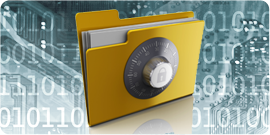Childcare Providers Enjoy Special Tax Deductions
Article Highlight:
- Auto Travel
- Capital Purchases
- Supplies
- Children’s Meals
- Business Use of the Home
If you are a childcare provider, tax law provides you with special tax breaks, including deductions for travel, capital purchases, supplies, children’s meals and the business use of your home.
Travel – Your auto expenses are based on the number of qualified business miles that you drive. Auto expenses for you (as a day care provider) could include transportation:
- To and from a class taken to enhance your day care skills;
- For field trips with those for whom you are providing care;
- For errands related to day care business (e.g., going to the bank to deposit day care receipts or to the store to shop for day care supplies); or
- To chauffeur day care attendees.
To claim business use of your vehicle, use the actual expense method or the standard mileage rate. However, the actual method requires far more detailed records; you must keep track of your business miles and total miles to prorate the costs of fuel, insurance, repairs, etc. You will probably find the standard mileage rate to be far less complicated, as you only need to contemporaneously record your business miles and the purpose of each trip. Even with the standard method, you’ll still need to know the total miles driven for the year. For 2017, the rate is 53.5 cents per mile, down from 54.0 cents per mile in 2016.
Capital Purchases – Capital items are those that normally last more than one year, including cribs and playground equipment. Be sure to keep receipts for these items, as they can generally be depreciated or expensed, whichever works best for you.
Supplies and Business Expenses – The cost of items such as crayons, coloring books, paper plates, cups, cleaning supplies, and first aid supplies are also deductible in the year they are purchased. However, you need to keep receipts for all such purchases.
Food – You can also deduct the actual cost of any food that is provided to the children in your care. It can be a bookkeeping nightmare to keep track of which grocery items were purchased for the childcare business and which were for personal consumption. Luckily, the government allows a care provider to deduct standard meal rates in lieu of actual amounts. This method does not require you to keep grocery receipts, and the IRS will not contest a food deduction based on the standard rates. The rates are the same throughout the contiguous U.S. states, with higher allowances for Alaska and Hawaii. Year State Breakfast Lunch Dinner Snack 2016 Contiguous Alaska Hawaii

Business Use of the Home – Generally, when a taxpayer claims a business deduction for the use of his or her home, the portion of the home that is used must be exclusively used for business purposes. Knowing that childcare providers do not use a specific space in the home 100 percent of the time, Congress added an exception related to the business’s licensing, certification, registration, or approval as a day care center or family/group care home under the provisions of any applicable state law. This exception applies only if the childcare owner or operator has applied for, been granted, or is exempt from such approval. In addition, the exception does not apply if the services performed are primarily educational or instructional in nature (e.g., musical instruction). However, the exception does apply if the services are primarily custodial, such that any educational, developmental or enrichment activities are only incidental to the custodial services. The services must be provided for adults age 65 or older, children, or other individuals who are physically or mentally incapable of caring for themselves.
When calculating the percentage use of a home for business, there are two factors: the space used to operate the day care business and the amount of time that the space is used to provide day care, including preparation and cleaning time.

There is also a simplified deduction method for the business use of a home; it may be useful for individuals who work from a home office, but it is generally unsuitable for a childcare business.
The deduction for the business use of a home is limited to gross income from the business. If that limit applies to you, any home mortgage interest and property taxes that you have paid, as well as any casualty losses that you have incurred for the year, are always deductible when you itemize deductions, regardless of whether you claim a deduction for the business use of the home.
If you have questions related to how any of these tax breaks apply to your childcare business, please give this office a call.




